Throwback Thursdays – 1/24/19
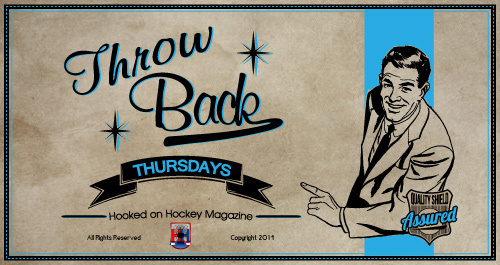
Welcome back to your regular Throwback Thursday!
After having fun with the “what if every team had to trade their captain for another captain?” (find Part One, Part Two, and Part Three here) we start a brand new series. This one is actually based on the whole “hockey history” concept that inspired Throwback Thursdays on this site. For this series we look back on the history of some of the NHL trophies. We’ll start this week with the Ted Lindsay Award, which for long-time fans was formerly the Lester B. Pearson Award.
What is the Ted Lindsay Award?
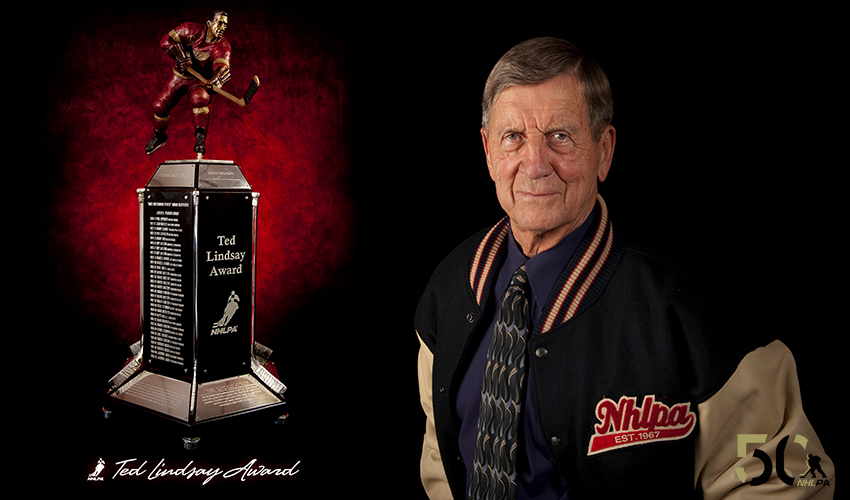
Photo: NHLPA.com
It is one of the NHL’s most prominent honours, it is awarded annually to the most outstanding player in the regular season as voted by their peers in the NHL Players Association.
OK then, who was this Lester B. Pearson fellow?
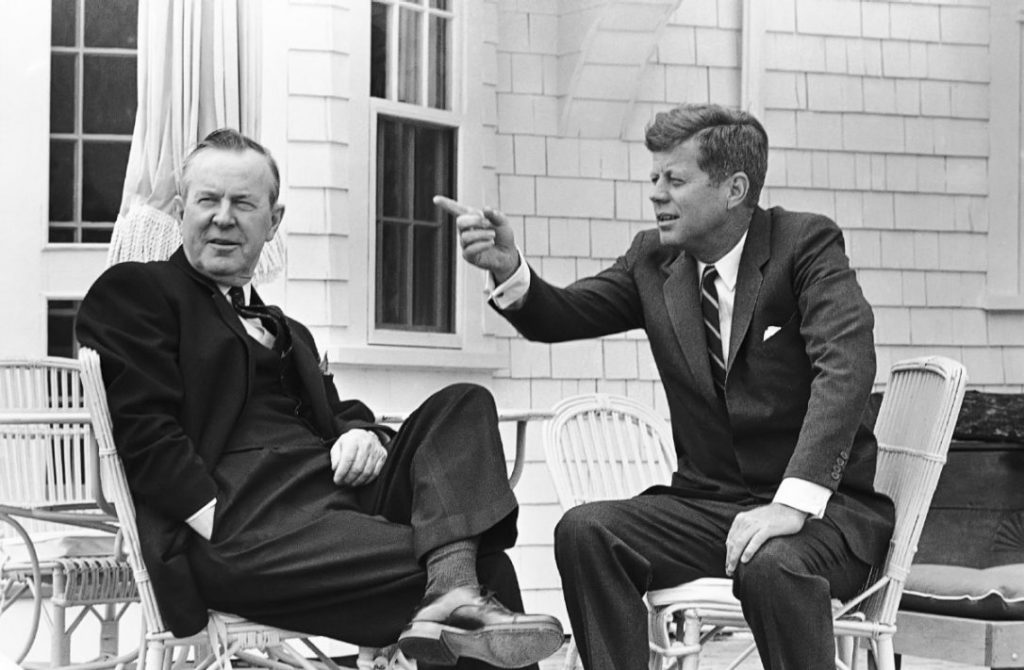
Lester Bowles Pearson, born April 23, 1897, was a well educated man with a passion for sports and politics. He enrolled in Victoria College at the age of 16 and was too young to enrol in the army when Canada joined World War I in 1914 so he joined a hospital unit sponsored by his university. To be brief, Lester became a central feature of Canadian politics and he led or was party to Canada’s involvement in joining the North Atlantic Treaty Organization (NATO), proposed a plan for getting the British and French out of Egypt during the Suez Crisis, which was the basis for Pearson winning the Nobel Peace Prize in 1957.

After gaining control of the Liberal Party in Canada, Pearson eventually became Prime Minister of Canada in 1963. He ceded control to the famous Pierre Trudeau in 1968 after retiring, but under his leadership, the government implemented a Canada Pension Plan, a universal medicare system, a unified armed force, and a new flagfor the country. These accomplishments as well as his former association with the University of Toronto Varsity Blues men’s hockey team as a player and coach led to the NHL Player’s Association (NHLPA) giving the honour of the award for most outstanding player as voted by members of the NHLPA to Pearson. The Lester B. Pearson award was first handed out in 1970-71 to Phil Esposito of the Boston Bruins.
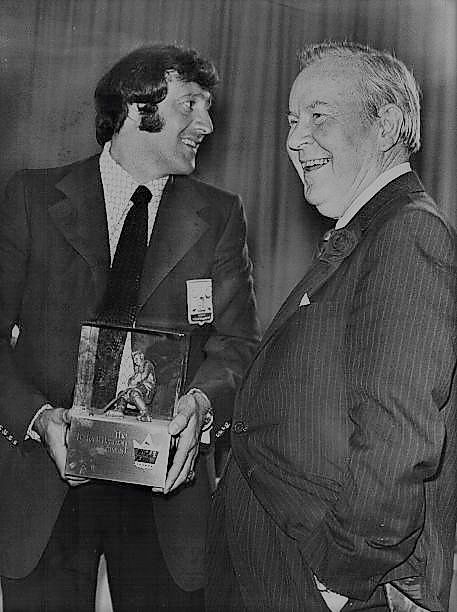
Makes sense, but who was Ted Lindsay?
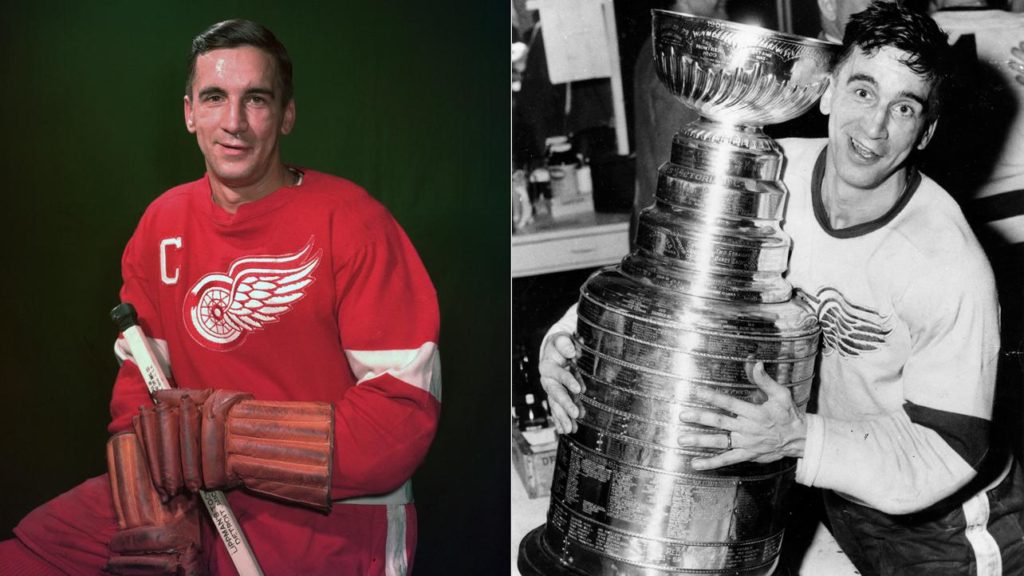
Ted Lindsay, born July 29, 1925, is a Hall of Fame Detroit Red Wings’ player who earned the nickname “Terrible Ted” for his tenacity and determination in his play. To give you an idea of his importance in hockey history, Lindsay was voted as one of the NHL’s 100 greatest players during the league’s centennial season. Lindsay scored over 800 points in his career, forming one of the NHL’s most formidable lines with Sid Abel and Gordie Howe, known as the “Production Line.”
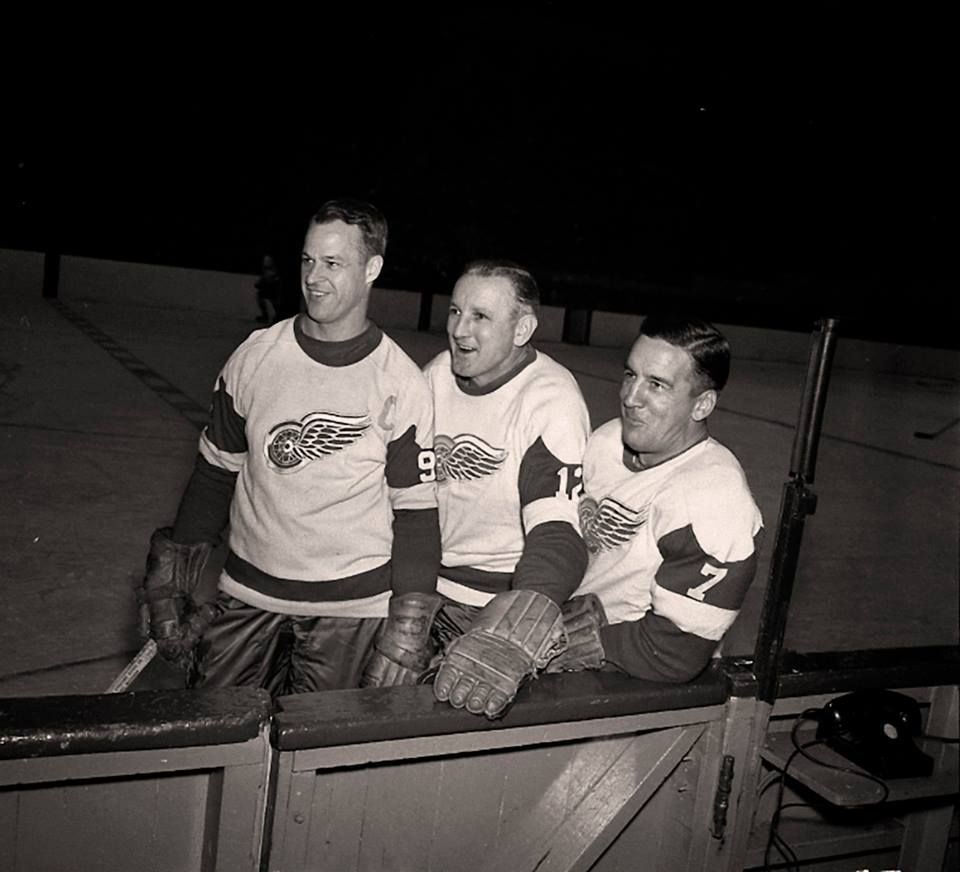
During the 1949-50 season Lindsay won the Art Ross trophy as the league’s top scorer with 78 points and the Wings would go on to win the Stanley Cup that season as well. As well as being a four-time Stanley Cup winner, and forming the NHLPA with Doug Harvey. Lindsay is recognized as one of the first players to skate around the rink with the Cup after a win. Allan Maki and The Globe and Mail set the stage in a 2013 article published about moments worth remembering in the Stanley Cup Playoffs and included Lindsay and the 1950 Cup Champion Red Wings:
“On night of April 23, 1950, Lindsay’s Detroit Red Wings and the visiting Rangers went into double overtime of Game 7 to decide the Stanley Cup champion. It was the first time in NHL history a Cup Final had gone to overtime in Game 7. And, in the end, Pete Babando scored to give Detroit its fourth Cup.
Here’s what happened after the Babando goal, according to Lindsay, still spry at 93 currently and 87 at the time of the Globe and Mail article:
“At that time, they had a table (on the ice). They took it out of the garbage or from some place in the Detroit Olympia. It was just a little table with four wooden legs and that’s what the Stanley Cup was sitting on. There wasn’t a drape over (the table). They presented it to Jack Adams (Detroit’s general manager). When that was over, the players took it to the room where you’d never see it again unless you won it again.
“There was no parade, no day with the Cup.”
But before it was taken to the Red Wings’ dressing room, Lindsay knew what he had to do with the Cup.
“I recognized who was paying my salary. It wasn’t the owners – [Conn] Smythe in Toronto, [James] Norris in Detroit. It was the people in the seats. I went to the [faceoff] dots in our end because that was where there was open seating. There was no glass around the boards like there is now. At the end of the rink, we had chicken wire.
“I saw all the people sitting there so I picked it up and took it to them. I wanted them to see the Stanley Cup up close. They got to read the names on it.”
The Globe and Mail noticed another important first: “Did he carry the Cup over his head? Yes, Lindsay did that, too.”
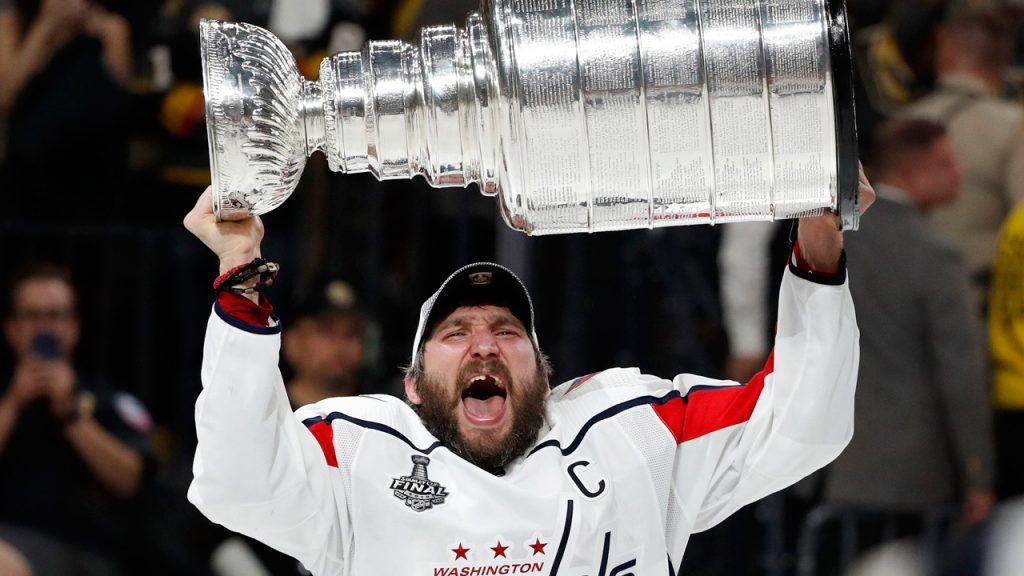
Lindsay went on to get into play-by-play commentary and then manage the Red Wings (and make himself coach for a terrible stretch 3-14-3 before backing out). During his managerial tenure he was named the NHL’s executive of the year in 1977.
Don’t forget his other list of honours, including four Stanley Cup Championships, a Memorial Cup Championship (from his time with the Oshawa Generals in 1944), being an eight-time NHL 1st team All-Star, a NHL 2nd team All-Star, invited to 11 All-Star Games, having his number (#7) retired by the Red Wings, being named #21 on The Hockey News Greatest 100 Players list, inducted into Canada’s Sports Hall of Fame in 2002, and being inducted in the Hockey Hall of Fame in 1966.
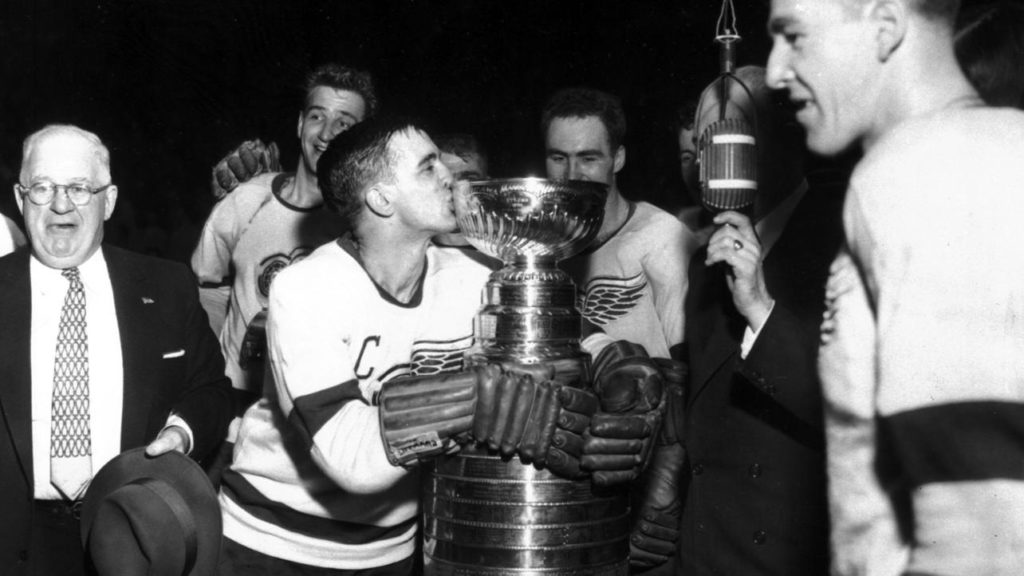
Now that we know what it is and who Lester and Ted are, who has won the award?
Well folks, to cap off our introductory NHL Awards article, here is a list of every winner of the Lester B. Pearson/Ted Lindsay Award:
Ted Lindsay Award Winners
- 2018: Connor McDavid, Edmonton Oilers
- 2017: Connor McDavid, Edmonton Oilers
- 2016: Patrick Kane, Chicago Blackhawks
- 2015: Carey Price, Montreal Canadiens
- 2014: Sidney Crosby, Pittsburgh Penguins
- 2013: Sidney Crosby, Pittsburgh Penguins
- 2012: Evgeni Malkin , Pittsburgh Penguins
- 2011: Daniel Sedin, Vancouver Canucks
- 2010: Alex Ovechkin, Washington Capitals
Lester B. Pearson Award Winners - 2009: Alex Ovechkin, Washington Capitals
- 2008: Alex Ovechkin, Washington Capitals
- 2007: Sidney Crosby, Pittsburgh Penguins
- 2006: Jaromir Jagr, New York Rangers
- 2004: Martin St. Louis, Tampa Bay Lightning
- 2003: Markus Naslund, Vancouver Canucks
- 2002: Jarome Iginla, Calgary Flames
- 2001: Joe Sakic, Colorado Avalanche
- 2000: Jaromir Jagr, Pittsburgh Penguins
- 1999: Jaromir Jagr, Pittsburgh Penguins
- 1998: Dominik Hasek, Buffalo Sabres
- 1997: Dominik Hasek, Buffalo Sabres
- 1996: Mario Lemieux, Pittsburgh Penguins
- 1995: Eric Lindros, Philadelphia Flyers
- 1994: Sergei Fedorov, Detroit Red Wings
- 1993: Mario Lemieux, Pittsburgh Penguins
- 1992: Mark Messier, New York Rangers
- 1991: Brett Hull, St. Louis Blues
- 1990: Mark Messier, Edmonton Oilers
- 1989: Steve Yzerman, Detroit Red Wings
- 1988: Mario Lemieux, Pittsburgh Penguins
- 1987: Wayne Gretzky, Edmonton Oilers
- 1986: Mario Lemieux, Pittsburgh Penguins
- 1985: Wayne Gretzky, Edmonton Oilers
- 1984: Wayne Gretzky, Edmonton Oilers
- 1983: Wayne Gretzky, Edmonton Oilers
- 1982: Wayne Gretzky, Edmonton Oilers
- 1981: Mike Liut, St. Louis Blues
- 1980: Marcel Dionne, Los Angeles Kings
- 1979: Marcel Dionne, Los Angeles Kings
- 1978: Guy Lafleur, Montreal Canadiens
- 1977: Guy Lafleur, Montreal Canadiens
- 1976: Guy Lafleur, Montreal Canadiens
- 1975: Bobby Orr, Boston Bruins
- 1974: Bobby Clarke, Philadelphia Flyers
- 1973: Phil Esposito, Boston Bruins
- 1972: Jean Ratelle, New York Rangers
- 1971: Phil Esposito, Boston Bruins

